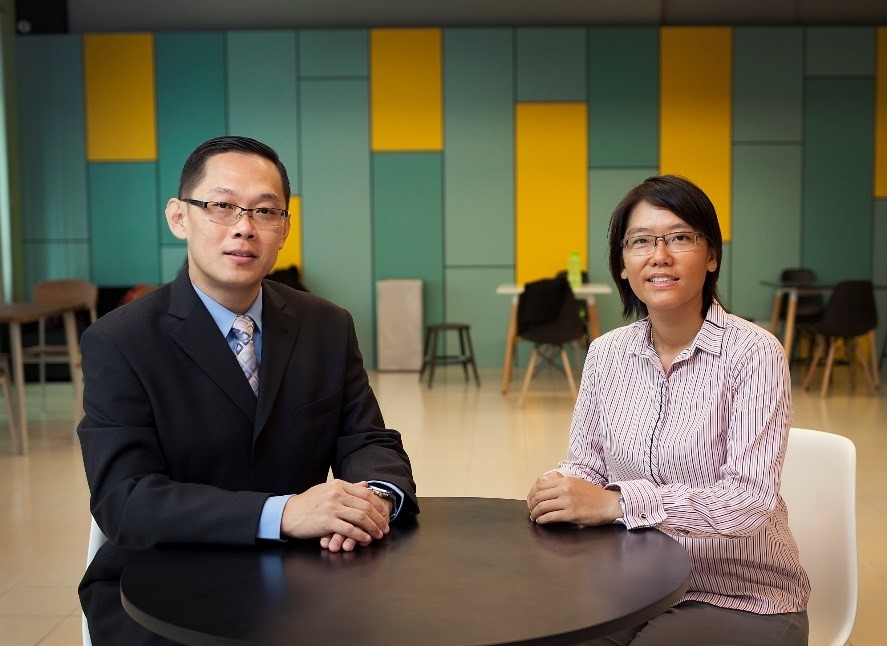KUCHING – If you’re looking for a postgraduate degree that prepares you for a wide range of professional roles in the building and construction industry, Swinburne University of Technology’s Master of Construction Management postgraduate degree is just what you need. As the only university in Borneo providing this program by coursework, you’ll be able to complete this degree in as quickly as eighteen months.
The Master of Construction Management is tailored for aspiring professionals within the building and construction industry and aims to prepare students for roles managing people, equipment, materials, and assets. Students will also be exposed to technological processes and managerial aspects related to the design, construction and maintenance of buildings and civil infrastructure.
By providing a structured study of advanced management theories, techniques, and practices in the planning and management of building and infrastructure projects, students pursuing the Master of Construction Management will gain significant knowledge and skills in procurement and project delivery, resource planning and management, project costing, health and safety, and risk management.
“The knowledge I gained helped improve my analytical and critical thinking skills. These come in handy for when I need to solve issues at the construction sites,” said Emily Fong, a part-time student who currently works as project engineer.
“The postgraduate program ultimately prepares students to be in full control when it comes to resources planning and risk assessment of a particular project. Studying the master of construction management course completely changed my way of thinking and provided me with the diverse perspectives to understand construction management throughout the entire life cycle of a project,” she added.
The Highest Ranking International University in Borneo
Recently, Swinburne Sarawak emerged as the highest-ranking international university in Borneo and is ranked in the top-25 percent of the overall rankings which list 243 universities across Asia Pacific.
The Times Higher Education (THE) Asia-Pacific University Ranking analysed universities across 38 nations in East Asia, Southeast Asia and Oceania and uses the same performance indicators as THE’s World University Rankings 2016-17, however weightings were adjusted to reflect the younger profile of some of the universities in the region.
The Asia-Pacific University Rankings have been introduced this year and assess world-class universities across research, research training, knowledge transfer and international research collaboration.
Swinburne’s civil engineering researchers are renowned for research that has a real impact on the community. This places the university within the top 75 universities worldwide for civil engineering in the Academic Ranking of World Universities (ARWU) according to Academic Subjects. This reflects the university’s commitment to high-quality, outcome focused research. ARWU also ranked Swinburne in the top 200 institutions in the world in science.
Swinburne was also ranked for the fourth consecutive year among the world’s top 400 universities by the Times Higher Education World University Rankings 2016. This year, Swinburne advanced to number 61 in the Times Higher Education Young University Rankings.
Swinburne’s position as a world-class university was recognised in the 2016 QS World University Rankings, placing itself among the top 450 universities as well as being recognised in the QS Top 100 Under 50. The prestigious Academic Ranking of World Universities (ARWU) ranked Swinburne as one of the world’s top 500 universities in 2016.
Flexible Study Duration & Problem-Based Learning
“Our Master of Construction Management is an eighteen-month program that offers flexible classes on weeknights and over the weekends. This tailors to the needs of working adults wanting to advance their career in this field,” said Associate Professor Su Hieng Tiong, Acting Dean, Faculty of Engineering, Computing and Science.
Students undergo three 12-week semesters and two short semesters of 6 weeks. Students would have to complete 12 units of study where each unit of study has a minimum 5 hours of class contact time per week. Students who have little time may also opt to take fewer classes per semester and complete it over a longer period of time. All units of study are prepared by experienced academic staff from both the Melbourne and Kuching campus.
“Our teaching and learning activities apply innovative problem-based learning (PBL) pedagogy to promote student’s collaborative and self-directed learning,” said Dr Su. “This is especially efficient in solving complex issues and problems”, he added.
Scholarships and financial assistance
Students will be able to pay their fees via an attractive instalment program and Swinburne alumni are eligible for the Swinburne Sarawak Alumni Bursary were they will be offered a 15% fee waiver for the total program fee. Additionally, newly enrolled students may apply for the Swinburne Sarawak Master by Coursework Bursary. This bursary is open to students who are not an alumnus of the university. Several scholarships are also offered by private and charitable bodies through the university and interested students may get in touch to learn more. Alternately, students may also utilise their Employee’s Provident Fund (EPF) Account 2 to pay for this master’s program.
Swinburne may also assist with the application of financial aids offered by state agencies and education loans from government-linked agencies. For local students who meet the criteria, they may apply for MyBrain15, a program for financing postgraduate studies by the Ministry of Higher Education Malaysia.


